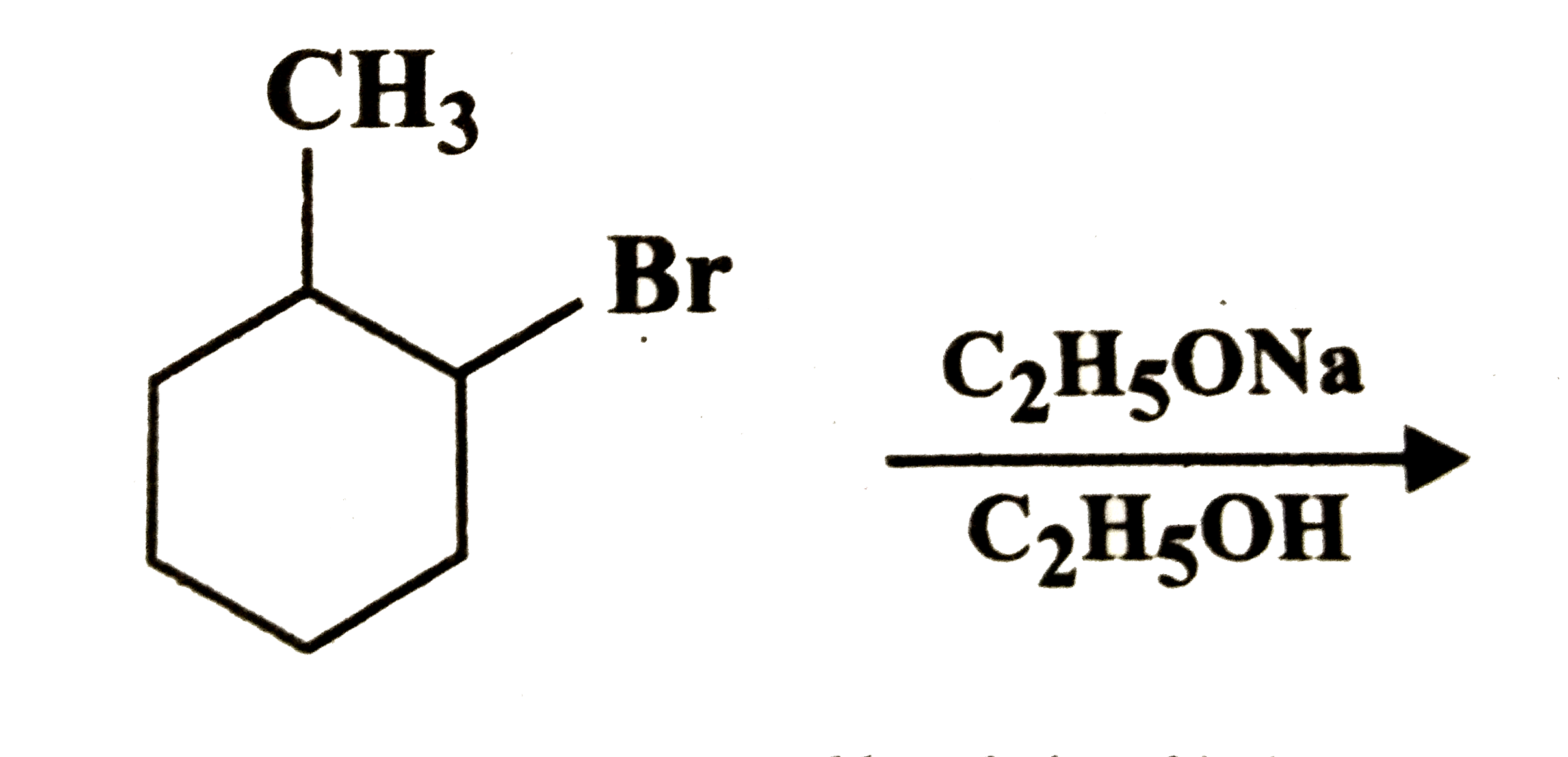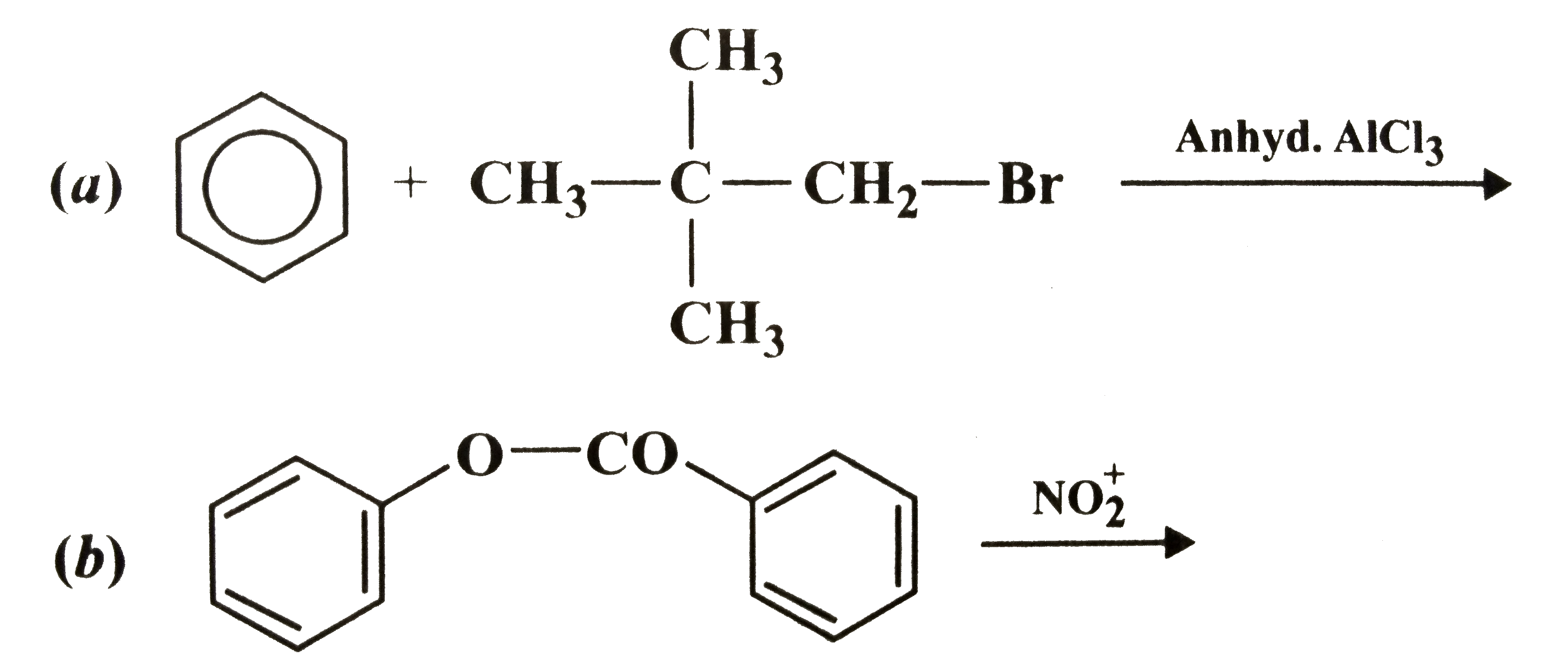Complete Solutions to CONCEPTUAL Questions of chapter HYDROCARBONS of Class 11 book with complete answers and questions
| Class 11 | CHEMISTRY |
| Chapter | HYDROCARBONS |
| PRADEEP | CONCEPTUAL Questions |
| Number Of Questions | 28 |
| Academic Year | 2023-24 |
Device a scheme for the synthesis of n-butane using `CH_3I`
as the only carbon source. Can you employ the reactions in your
scheme to synthesis propane in fairly pure state ? Explain
View SolutionHow will you prepare a pure sample of propane ?
View SolutionWhat happens when butanoic acid is heated with soda-lime at 630 K ?
Is there any other acid which also gives the same product under similar
conditions. Write its name and the reaction involved .
View SolutionGive structure of the product `(X)` in the following reaction :

View SolutionWhich of the following has the highest boiling point ?
(i) 2-Methylpentane (ii) 2, 3-Dimethylbutane (iii) 2, 2-Dimethylbutane
View SolutionWhat effect the branching of an alkane has on its boiling point?
View SolutionAn organic compound `C_(8)H_(18)` on monochlorination gives a single monochloride. Write the structure of the hydrocarbon.
View SolutionWhat are the main constituents of LPG ?
View Solutiona. Why are alkanes inert ?
b. Why the (C----C) bond rather than (C----H) bond breaks when alkanes are pyrolysed ?
c. Why the combustion of alkanes does not occur at moderate temperature, although it is an exothermic process ?
View SolutionIs it possible to isolate pure staggered ethane or pure eclipsed ethane at room temperature?
View SolutionDehydration of alcohol to form an alkene is always carried out with concentrated `H_(2)SO_(4)` and not with concentrated `HCl` or `HNO_(3)`. Explain.
View SolutionDehydration of 1-butanol or 2-butanol with conc. `H_2SO_4` always gives the same mixture of 2-butene (80 %) and 1-butene (20 %) but dehydrohalogenation of 1-bromobutane with alc. KOH gives 1-butene as the major product while that of 2-bromobutane gives 2-butene as the major product . Explain why ?
View SolutionPredict the major product of the following reaction: `C_(6)H_(6)+(CH_(3))_(2)CHCH_(2)OH overset(H_(2)SO_(4))to`
View SolutionIdentify the organic products obtained in the following reaction :

View SolutionPredict the products of the following reaction

View SolutionComplete the following reactions with appropriate structures of product/reagents :
`C_6 H_5 CH= CH_2 overset(Br_2)to [A] underset((ii) CH_3 I)overset((i)NaNH_2 (3 "equivalent"))to [B]`
View SolutionHow will you prepare 3-methylbut-1-yne by starting with ethyne ?
View SolutionPredict the major product in the following reaction :
`R-C-=C-R underset"Lindlar's catalyst"overset(H_2)to `
View SolutionIdentify the product in the reaction `PhC-=CMe overset(H_3O^(+),Hg^(2+)?)rarr`
View SolutionHow will you prepare (i) cis-pent-2-ene and trans-pent-2-ene by starting with ethyne ?
View SolutionStarting with ethyne, how will
you prepare pentan-2-one ?
View SolutionHow will you separate a mixture
of ethane, ethylene and acetylene ?
View SolutionGive reasons for the following:
`CH_2=CH^(Θ)` is more basic than `HC-=C^(Θ)`
View SolutionPredict which of the following systems would be aromatic and why ?

View SolutionOzonolysis of mesitylene gives
View SolutionWrite the major product in each case

View SolutionTert-Butylbenzene does not benzoic acid on oxidation with acidic `KMnO_(4)`. Give reason.
View SolutionHow will you explain the directive influence of
(i)`-CH=CH_2` and (ii) `-C Cl_3` group when attached to the benzene ring ?
View Solution
CONCEPTUAL Questions questions and complete solutions for chapter HYDROCARBONS of PRADEEP CHEMISTRY (HINGLISH) of Class 11
All Exercises from PRADEEP Class 11 CHEMISTRY HYDROCARBONS
- ADDITIONAL QUESTIONS (LONG ANSWER QUESTIONS)
- ADDITIONAL QUESTIONS (SHORT ANSWER QUESTIONS)
- ADDITIONAL QUESTIONS (VERY SHORT ANSWER TYPE QUESTIONS )
- ADVANCED PROBLEMS FOR COMPETITION
- ANALYTICAL QUESTIONS AND PROBLEMS WITH ANSWERS/SOLUTIONS (PROBLEMS)
- ANALYTICAL QUESTIONS AND PROBLEMS WITH ANSWERS/SOLUTIONS (QUESTIONS)
- Competition Focus (JEE(main and advanced)/Medical Entrance) III. MULTIPLE CHOICE
- Competition Focus (JEE(main and advanced)/Medical Entrance) IV. MATCHING TYPE QUESTIONS
- Competition Focus (JEE(main and advanced)/Medical Entrance) V. MATRIX-MATCH TYPE QUESTIONS
- Competition Focus (JEE(main and advanced)/Medical Entrance) VI.INTEGER TYPE QUESTIONS
- Competition Focus (JEE(main and advanced)/Medical Entrance) VII.NUMERICAL VALUE TYPE QUESTIONS
- Competition Focus (JEE(main and advanced)/Medical Entrance) VIII. ASSERTION - REASON TYPE QUESTIONS
- Competition Focus (JEE(main and advanced)/Medical Entrance) I. MULTIPLE CHOICE QUESTIONS
- Competition Focus (JEE(main and advanced)/Medical Entrance) II. MULTIPLE CHOICE
- CONCEPTUAL Questions
- CURIOSITY QUESTIONS
- NCERT EXEMPLAR PROBLEMS WITH ANSWERS, HINTS AND SOLUTIONS (MULTIPLE CHOICE -I)
- NCERT EXEMPLAR PROBLEMS WITH ANSWERS, HINTS AND SOLUTIONS (MULTIPLE CHOICE -II)
- NCERT EXEMPLAR PROBLEMS WITH ANSWERS, HINTS AND SOLUTIONS (ASSERTION AND REASON TYPE QUESTIONS)
- NCERT EXEMPLAR PROBLEMS WITH ANSWERS, HINTS AND SOLUTIONS (LONG ANSWER QUESTIONS )
- NCERT EXEMPLAR PROBLEMS WITH ANSWERS, HINTS AND SOLUTIONS (MATCHING TYPE QUESTIONS)
- NCERT EXEMPLAR PROBLEMS WITH ANSWERS, HINTS AND SOLUTIONS (SHORT ANSWER QUESTIONS)
- NCERT QUESTION AND EXERCISES WITH ANSWERS
- NCERT QUESTION AND EXERCISES WITH ANSWERS (NCERT EXCERCISES)
- PROBLEMS FOR PRACTICE
- SAMPLE PROBLEM
- TEST YOUR GRIP (FILL IN THE BLANKS )
- TEST YOUR GRIP (MULTIPLE CHOICE )